| If you can't view the email, please click here. |
|
|
|
Summer 2017 Vol. 16 No. 2
|
|
From the Desk of the Editor
Süreya Martha Köprülü
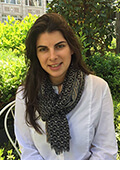
“Over the last couple of years, Turkey has weathered multiples storms in close succession: two general elections that took place in a polarized political climate, an escalation of the Turkey-PKK conflict, a crisis with Russia, the 2016 failed coup attempt followed by state of emergency measures, and the continued threat of terrorist attacks.”
“The extent to which the Turkish economy has been resilient to political shake-ups is a subject of debate among both policymakers and economists. While some argue that the shift to an executive presidency will positively impact the economy and contribute to job creation and growth, others have identified the risks of what they consider to be a short-sighted economic policy.”
“As has become a tradition, TPQ’s Summer issue revolves around sustainable development issues and domestic economic dynamics. This year’s issue has a particular focus on engines of growth and sources of stability for the country, including entrepreneurship, innovation, Industry 4.0, and gender equality in the workforce. Against the backdrop of the country’s growing economic and political risks, our authors evaluate the resilience of the Turkish economy and recipes for good governance and growth.”
|
|
The ‘Justice March’ & the State of Turkey’s Democracy
Interview with Kemal Kılıçdaroğlu
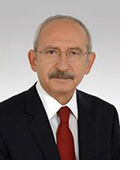
“After the attempted coup on 15 July 2017, the atmosphere in Turkey changed dramatically. All the political parties – in and outside of parliament – and civil society organizations rushed to safeguard democracy. It was an extraordinary atmosphere, as it was possibly the first time in the history of the Republic that everyone in Turkey was defending democracy.”
“There is no longer democracy or justice in the country, one of the fundamental reasons for this being the erosion of the justice system. If the justice system is being used as a political weapon or as a primary tool to liquidate the opposition, then there is no democracy. This was the fundamental reason for the decision to march to Istanbul.”
“I am hopeful. In 2019, we will replace the current leader. I do not have the slightest doubt about this because I trust the common sense of the people. The current state of affairs is unsustainable and the country cannot tolerate it much longer. I do not think that Turkey will continue to support a repressive regime for long because it has fought for democracy and has paid a steep price to achieve it.”
|
|
|
The Advent of Turkey’s Industry 4.0
Faruk Özlü
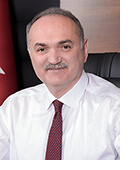
“Technology is transforming not just the manufacturing sector but many others as well, and is affecting every segment of society. In cities, for example, Internet of Things technologies are expected to have an economic impact worth 0.9-1.7 trillion dollars by 2025. It is predicted that just the benefit provided by smart traffic management systems will amount to approximately 500-900 billion dollars per year.”
“If Turkey does not invest in smart manufacturing systems or delays these investments, our low added value manufacturing trend will remain largely unchanged, which means that we will lose our competitive edge. The result will be that Turkey’s share of the global market will quickly erode and our manufacturers will also begin to struggle in the domestic market.”
“In order to achieve the digital transformation of our manufacturing industry, we must on the one hand, strengthen our capacity for generating technology, and on the other hand, pave the way to digital transformation for our businesses. Within the framework of these two strategic goals, we plan to continue Turkey's work taking into consideration aspects of competency, financing, and infrastructure.”
|
|
|
The Role of Wealth Funds in an Entrepreneurial Economy
Mehmet Bostan & Mustafa Ergen
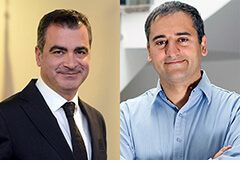
“Promoting entrepreneurship is one of the most effective ways to increase inclusivity. Targeting a bottom-up process of specialization and differentiation would give rise to the formation of a new culture of entrepreneurial clusters. However, the remaining question is how to ignite this.”
“The Turkish Wealth Fund (TWF) aims to be the investment gate of Turkey. It has a strong and diverse portfolio that includes Turkey’s largest bank, airline, and telecom operator. It will invest in technological prowess and entrepreneurial capital in order to contribute to the economic catch-up aligning Turkey’s ambitious 2023, 2053, and 2071 plans.”
|
|
|
Advancing Women’s Equality in Turkey
Aylin Nazlıaka

“12 trillion dollars could be added to the world’s GDP by 2025 by advancing women’s equality in the workplace or closing gender gaps in both the public and private sectors. However, Turkey is among the countries that underutilizes the economic potential of its female population.”
“The first thing that has to happen to advance women’s rights is altering the prevailing patriarchal mindset. Only a government that truly believes in equality can produce policies that will strengthen women, create equal opportunities in education to increase girls’ enrollment in school, and boost their participation in politics, the workforce, the arts, and culture. By doing so, we can eliminate injustice and inequality, protect women who are exposed to violence and oppression, and put forth powerful women as role models.”
|
|
|
The Qatar Diplomatic Crisis and the Politics of Energy
Mithat Rende
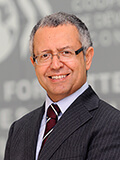
“Saudi Arabia regards Iran as both an ideological rival as well as a threat to its oil fields and vital interests in the region. In response, one of Saudi Arabia’s basic foreign policy objectives has been to encircle and weaken Iran whenever possible and restrict its influence in the eastern coast of the Gulf.”
“The blockade now being imposed on Qatar may adversely affect its exports of LNG in the medium and long-term. This might make US exports of LNG to Europe more attractive price-wise. Pipeline gas from Russia may also partially benefit from the situation.”
|
|
|
Achieving Sustainable Growth through Economic Inclusion in Turkey
Roger Kelly
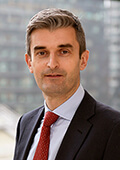
“Several policy choices have been made by the Turkish government to date which have helped the economy weather the potential economic storm resulting from the country’s challenging domestic and external environments over the past 18 months. The government’s policies have boosted credit via the Credit Guarantee Fund and has introduced various fiscal stimuli.”
“The EBRD’s mission is to develop open and sustainable market economies in countries committed to applying democratic principles. While this mission manifests itself through different activities according to the country in which it operates, the concept of sustainable growth is key. In Turkey, this mission is partly achieved by providing finance for projects, and partly by financing policy-related activities.”
|
|
|
Turkey’s Entrepreneurial Ecosystem: Values over Valuations
Hansın Doğan
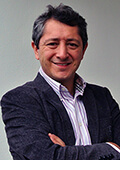
“Entrepreneurship is important for economic development, social integration, and inequality reduction. To sustain their competitiveness, developing economies – facing external conditions such as the competitive effects of globalization and frequent financial crises – are compelled to identify key opportunities and threats in order to be more entrepreneurial, adaptive, and innovative.”
“Startups are now an integral part of the Turkish economy and with more coherent policies on creating shared value and inclusiveness, the country can quickly return to the fast-track growth pattern it used to exercise for many decades before, and re-join the ‘global economic fast lane.’”
|
|
|
“One Belt One Road” Initiative: Perks and Challenges for Turkey
Rıza Kadılar & Erkin Ergüney
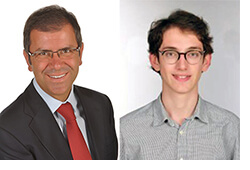
“The One Belt One Road Initiative can provide Turkey with an opportunity to enhance its regional role, which would have a more reconciliatory mode as its neighboring countries would be more co-dependent through trade and increased interconnection.”
“China’s modern silk road project is shaping out to be the 21st century’s biggest infrastructure investment yet, which will strengthen economic linkages between participating countries. Turkey’s support of the project can significantly contribute to Turko-Sino economic and trade ties, as well as enhance diplomatic relations between Ankara and Beijing.”
|
|
|
A New Era for Cities: Time to Combat Climate Change at the Urban Level
Özgül Erdemli Mutlu
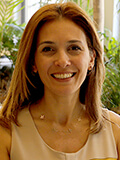
“Recognition of the 1.5 degrees Celsius target and the correct emphasis on the long-term goal to ensure carbon neutrality have been critical achievements of the Paris Agreement. However, the Agreement’s main shortcoming is related to its governance structure; it is based on contributions, not commitments.”
“Cities may be vibrant, dynamic, and innovative engines, but at the same time, they are also the root of many problems of environment, poverty, social equity, social justice, and immigration. The way forward for cities may be in new governance models at the urban level focusing on sustainability, resilience, social inclusion, and justice.”
|
|
|
One Step Forward, Two Steps Back: Gender Equality in Turkey
Ürün Güner

“Turkey is experiencing an erosion of fundamental human rights, with women primarily experiencing the repercussions of this regression. Each day the situation is deteriorating, ranging from discrimination and violence against women, to their representation before judicial bodies.”
“Flying Broom has been actively involved in women’s rights issues since its founding in 1996. Through networking, communication, and capacity building, Flying Broom has evolved into a powerful network connecting women’s NGOs around the country, and facilitating the pursuance of their goals. The fact that Flying Broom has its base in Ankara means the ability to influence the legislative process.”
|
|
|
Book Review: False Dawn: Protest, Democracy, and Violence in the New Middle East
Semuhi Sinanoğlu
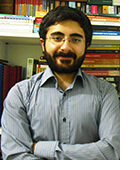
“While scrutinizing the repercussions of the Arab Spring, the crux of the issue for Cook is that there has still been no structural change – the prevailing socioeconomic relations has remained intact in Tunisia, Egypt, Libya, and Turkey. In other words, as old power structures were not eliminated, these uprisings cannot be construed as ‘revolutions.’”
“Cook puts forward the view that the political environment in the region is not conducive for American diplomacy, and that the US should not even try to resolve high-stake struggles in the region. This is a maverick argument from someone highly involved in the American policy ecosystem, which also resonates with the secular-minded Turkish citizens’ foreign policy preferences about the Middle East.”
|
|
|
Interested in contributing an op-ed to TPQ's blog?
For guidelines click here. |
|
|
The Premium Corporate Sponsor of this Issue
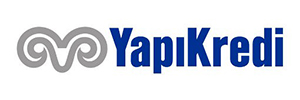 |
|
|
Thanks to Our Media Partner |
 |
|
|
 |
Phone: +90 212 621 4442 - +90 212 621 9258 Fax: +90 212 531 8718 info@turkishpolicy.com
Click to unsubscribe |
|
|
